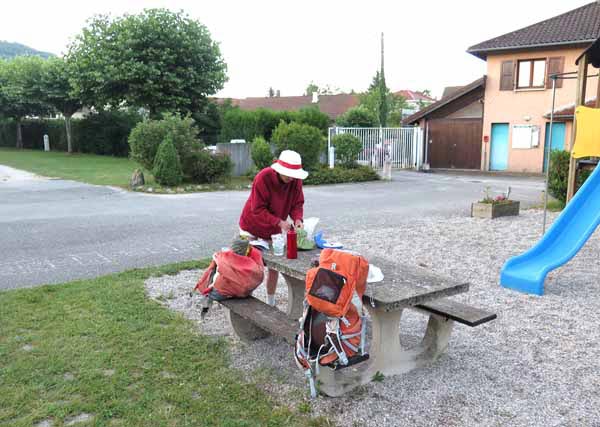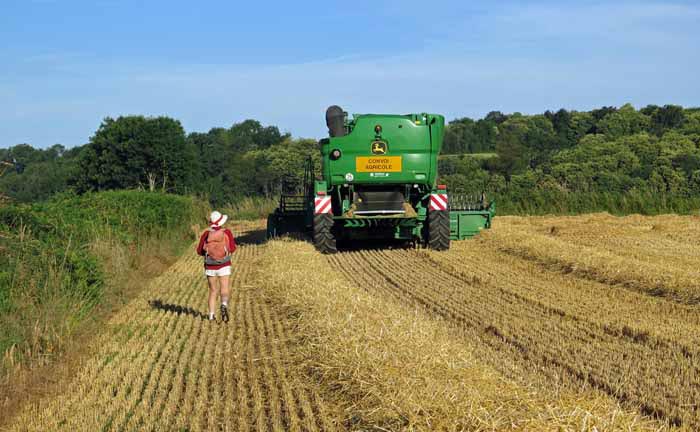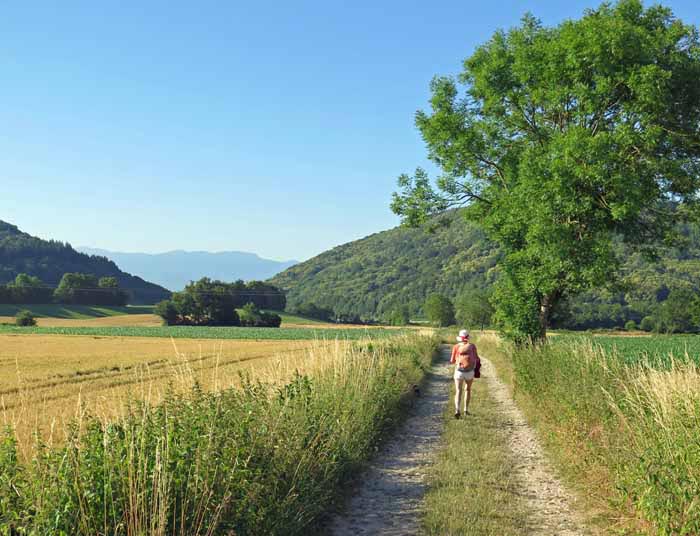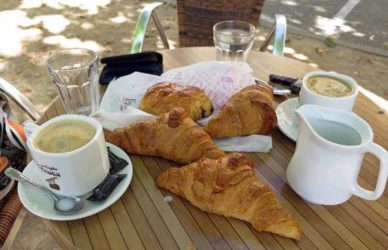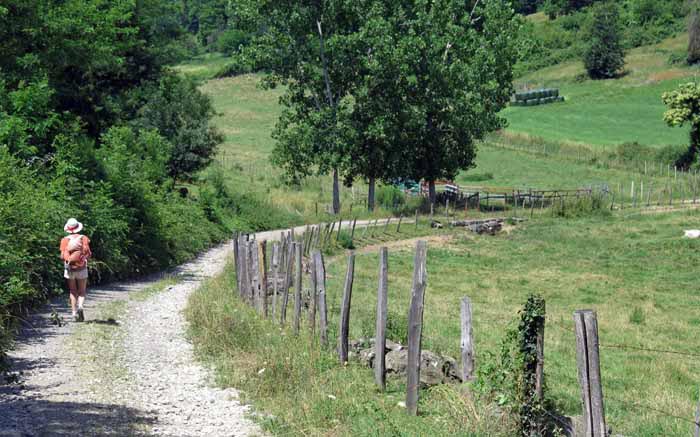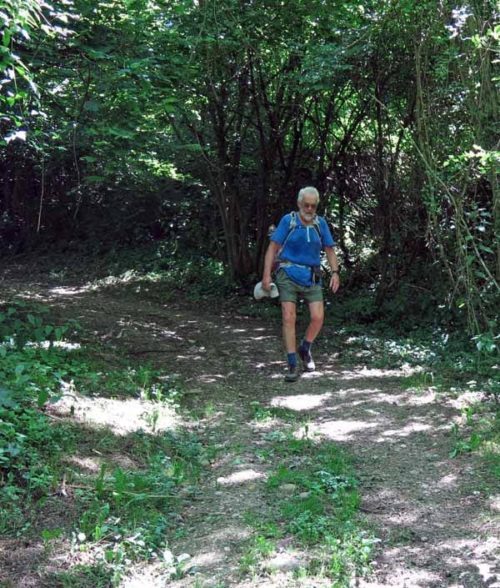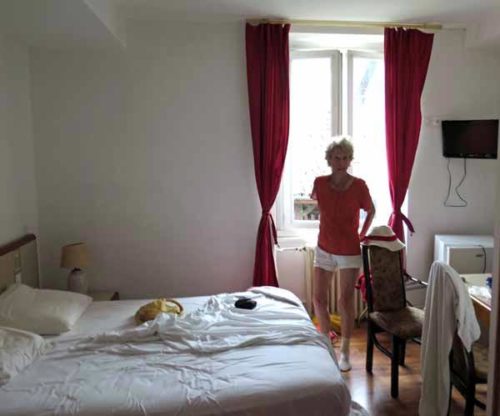Thursday, 7 July 2016
Distance 28 km
Duration 6 hours 20 minutes
Ascent 419 m, descent 515 m
Map 150 of the
Topoguide (ref. 650) Sentier vers Saint-Jacques-de-Compostelle : Genève – Le Puy
We had a long way to go, so we rose early and ate our muesli at a concrete table near the entrance.
It was only when we tried to leave that we realised that the high steel gate was locked, and there was no way around it.
Our banging on the office door and ringing of the bell produced no response except from one of the long-term residents, who came up and informed us that the gate was always closed from
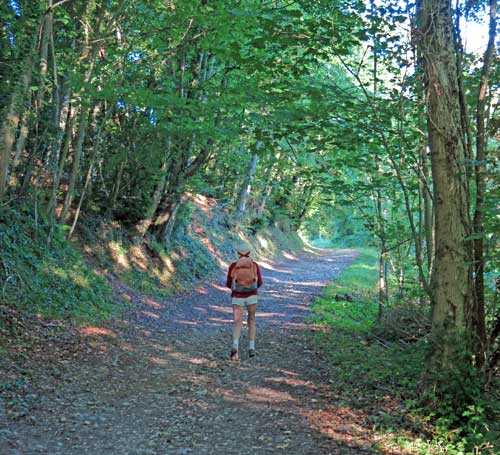
We contemplated what would have happened if we had been a few minutes later returning from dinner last night.
To our great relief, the gate slid away punctually and we emerged with only minor indignation.
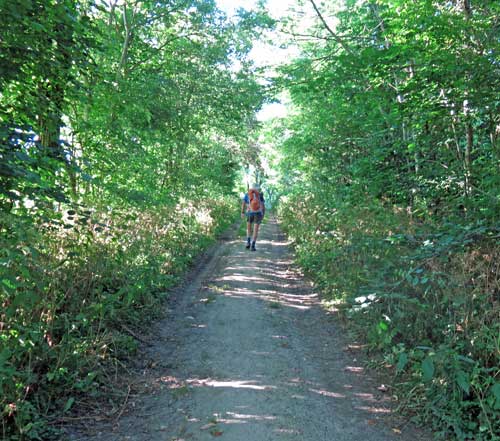
Back past the restaurant, we began to climb through a forest, and kept climbing until we reached open grasslands.
We only got lost once, where the track had been ploughed up and planted as a hayfield, but we marched over it anyway.
Luckily, the hay had just been harvested so it was easy going.
Having crossed the D17 on a farm road, we skirted the base of Mont-St-Marc and were reunited with the GR for the first time since le Pin.
We continued on a succession of small roads, went under the autoroute and began a steep climb, followed by an equally steep fall and finally a vertiginous stony tunnel through a small wood, which delivered us to the first houses of le Grand-Lemps.
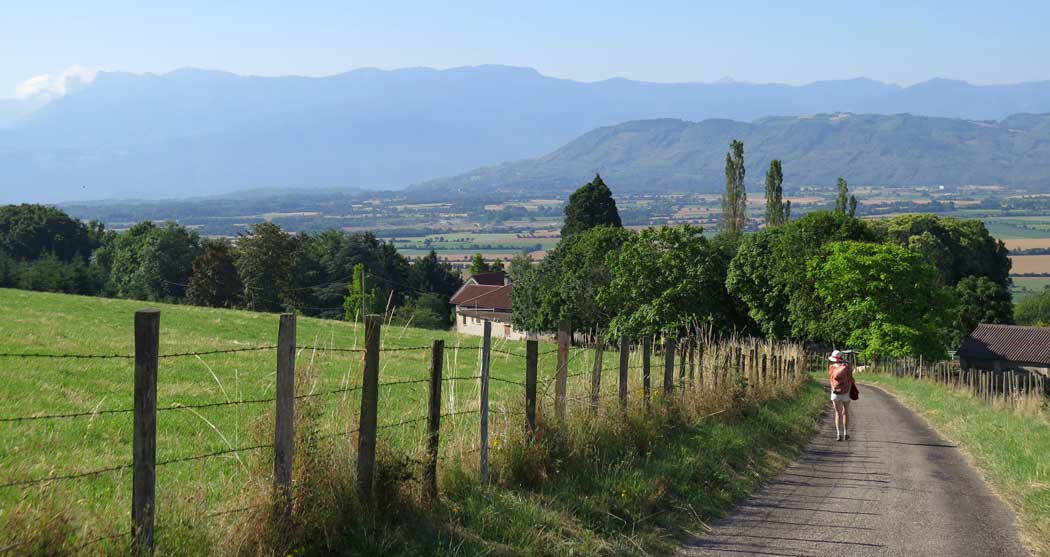
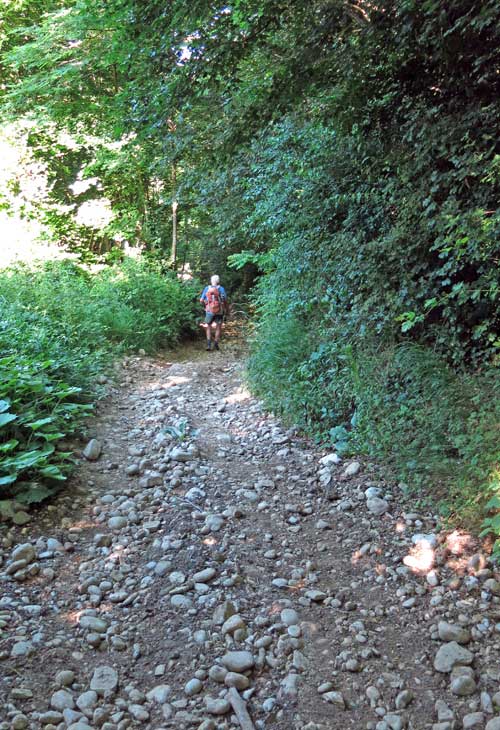
Departing momentarily from the GR, we stepped down to the main square of the town, a fine wide space shaded by a double row of plane trees.
Several cafés had put tables and chairs under the trees and we quickly established ourselves at one of them, with a bag of recently bought pastries in hand. It was
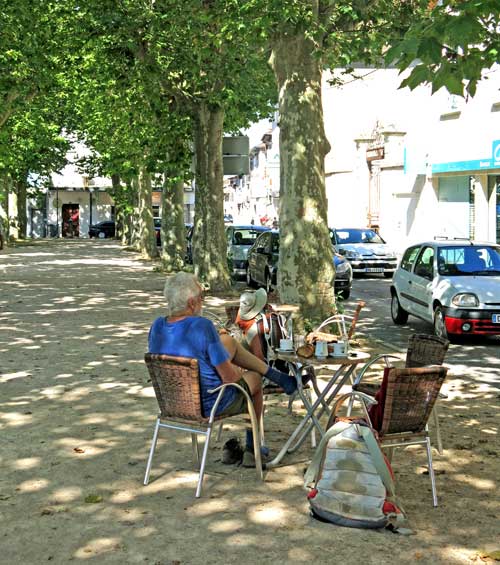

When we felt inclined to go on, we regained the GR by taking the street past the graveyard, and continued our peaceful way.
There were high forested slopes to the right of us but our track was flat and open.
After an hour or so we made another deviation, this time to the village of la Frette on the highway.
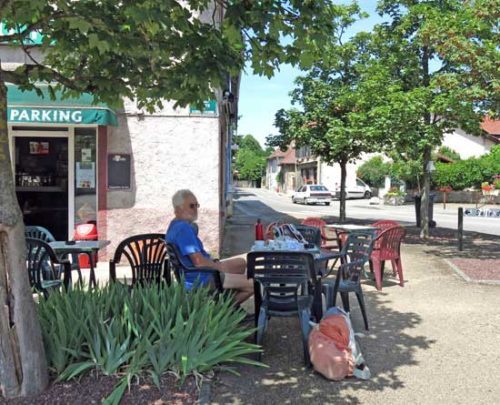
We thought there would be a bar there, and found one at the first corner, romantically named the Bar du Parking, since there was a parking area opposite.
It was now noon, lunch time by French standards, and people were dining inside, but we sat outside under a tree for what was no more than a refill of our coffees of the Grand-Lemps.
While we were there, a car came to the corner and blocked the traffic ahead of a Convoi Exceptionnel – a huge ocean-going boat on a trailer. It seemed a long way to the nearest ocean.
Back on the GR, we found the track starting to rise into the forest, only to fall again, then rise once more.
We were on the actual slope or côte after which the nearby towns were named (St-Hilaire-de-la-Côte, la Côte-St-André).
We passed a château buried in its garden, then left the road and began our final descent on a dusty wheel track under the black shade of the forest.
Quite suddenly we arrived in the main street of la Côte-St-André, as straight as a gun-barrel and lined with shops. Towards the other end we found the Hôtel de l’Europe, where we were hoping to stay, as there was no camping in this town.
The front rooms of the hotel looked rather shabby and odd – we worked out later that it was more of a workers’ hostel than a tourist hotel – but our room was lovely, all white, with cherry-red curtains and bedspread, no ghastly paintings on the walls, and space-age plumbing.
Having given this plumbing a thorough workout, and had a luxurious rest, we set off in our clean clothes to look for a place to eat.
There were posters on the street advertising the forthcoming Berlioz festival – Hector Berlioz was born in la Côte-St-André in 1803 and spent the first eighteen years of his life here before becoming a famous composer.
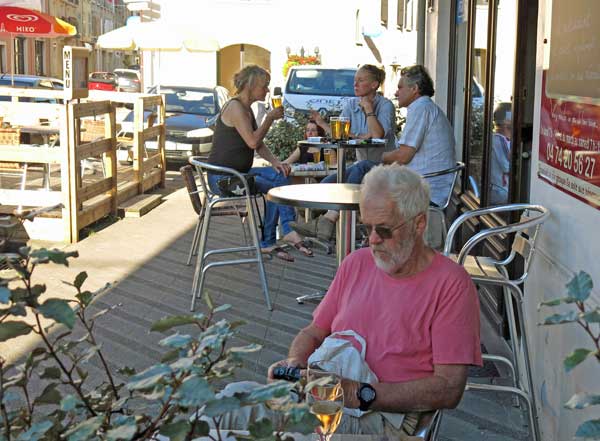
As to restaurants, there were plenty of them but none took our fancy. They were either absurdly expensive, like the Logis hotel in the church square, or too drab and dreary.
In desperation we sat down at a bar opposite the Logis and tried to clear our minds with cold glasses of rosé, that dawn-pale rosé so beloved in this part of France (and many others).
Still undecided, although in happier spirits, we wandered back to the five-way corner near our hotel (known locally as the six routes, for reasons unknown) and noticed people eating, a little way up the side street.
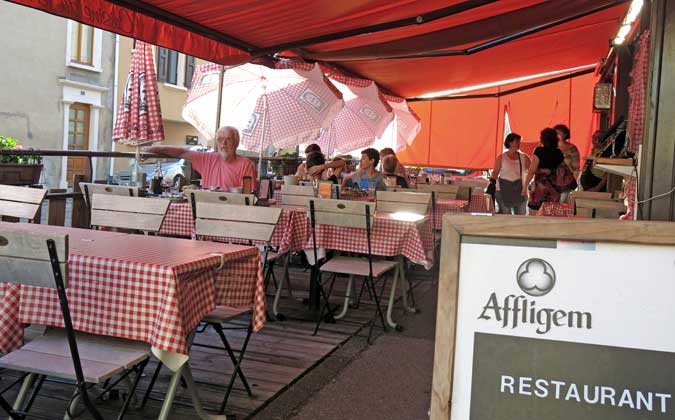
The place was called Chez la Mère Marin and there was a big red awning stretched right across the pavement to block the sun, which was pouring down the street like molten lava.
The atmosphere was cheerful and the menu looked good, so we sat down and our host bustled out to raise an extra parasol at the edge in case a ray of sun should get through.
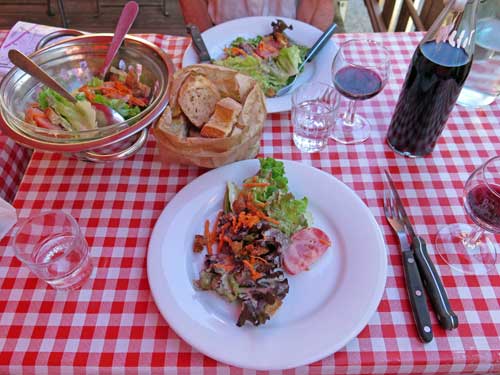
We began with a salade verte for €5, which was elaborate and generous, more than enough for us to share.
It came in a glass bowl inside a colander, while the bread came in a paper bag and the cutlery in a vase. Apart from that, the receptacles were normal.
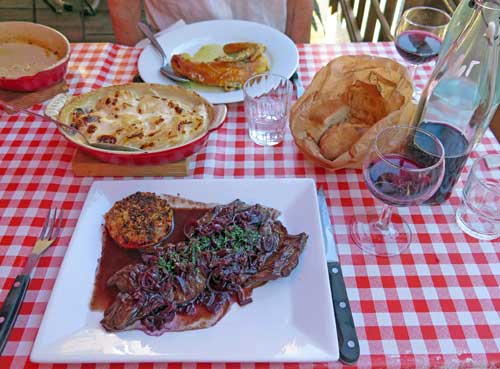
Following that, our grave, fleshy, courteous waiter (no doubt the owner) brought steak for Keith and chicken for me, each with its side dish of gratin dauphinois. As usual, I could only eat half of mine.
At the hotel, there were still people eating in the dining room, single men for the most part, as we mounted the stairs to our lovely room.
Previous day: Paladru to Charavines
